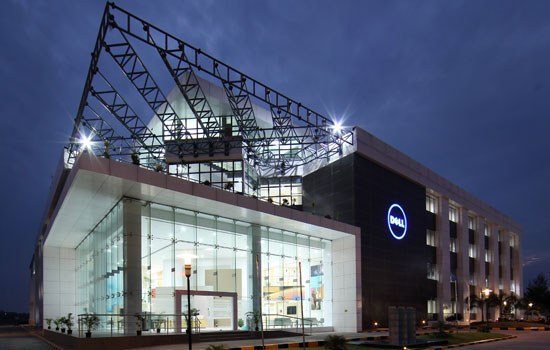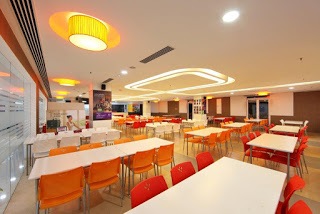You probably don’t think about your physical work environment very often, unless something is making it uncomfortable. But facilities management professionals put a lot of thought into it, and our Dell Facilities team has been working hard to not only help employees like me more productive, but to also reduce our environmental footprint.
Upgrading heating and air conditioning equipment, using more efficient lighting and installing fixtures that use less water are all ways they help us make the progress on our Legacy of Good plan as Trisa Thompson recently shared. And in March 2015, we we achieved our first Leadership in Energy and Environmental Design (LEED) certification for new construction.
LEED is an internationally-recognized certification program for green buildings that sets strict criteria for many aspects of a building, such as construction practices, overall design and more. To become certified, project architects and engineers must submit detailed information after construction is complete for rigorous review and scoring.
Our latest building in Coimbatore, located in the state of Tamil Nadu in southern India, supports our growing Services activities in the region and is the new home for more than 2,000 Dell team members.[SG1] The facility recently scored enough points to achieve the LEED Gold designation – the second highest category.
“It's a proud feeling each time I look at the certificate mounted in the front reception,” said Savitha Menon. “The building and the area around speaks volumes about our careful planning and an effort to save the environment.”
This is just the beginning of a new generation of smart, efficient building projects at Dell designed to meet LEED standards. We recently opened a large, leased office building in Noida in Uttar Pradesh state in northern India that we outfitted to meet the LEED Gold standard for Commercial Interiors. Additionally, a new office tower under construction at our campus in Bengaluru, India, is designed to meet the LEED Platinum standards – the highest level possible. The Noida project has been submitted to for LEED certification consideration, and the Bengaluru building will be submitted once it is completed.
Here are a few highlights of the new building:
Construction materials
- 96 percent of all wastes produced during construction were reclaimed or recycling
- Fly ash, a waste material from power plants, was used in the concrete
- Extensive use of windows with high-performance glazing to provide natural daylighting
- LED lighting, both indoors and outdoors
- Special roof insulation and highly-reflective roof tiles reduce heat gain
- Solar panels generate electricity for use in the cafeteria and lobby
- Heat wheel technology for cooling: this type of system is energy-efficient and also avoids the need to use water for cooling
Water-efficient design
- On-site wastewater treatment with 100 percent of the treated water used for toilet flushing and landscaping irrigation
- Rainwater harvesting system captures runoff that can also be used in the landscaping
- Automatic shut-off sensors on lavatory fixtures
Other sustainability elements
- Recycled-content carpeting and fabrics used in workstations
- Use of low-VOC (volatile organic compounds) coatings, sealants andother materials throughout the facility
- Electric vehicle charging stations in the car park area
- Wet scrubbers on back-up electrical generators to reduce emissions
“I’m feeling proud to be part of this site and the building is a world class place to work,” said Ramakrishnan Dakshin. “I have not seen this type of set up in any of my previous organizations, for whom I have worked. I would like to thank the team behind for this success.”
Outside of India, the Dell Software building in Cork, Ireland that opened in 2012 was designed to LEED Gold standards. Dell also leases considerable space in several other green buildings, including those in Lincoln, Nebraska, and Eden Prairie, Minnesota, and Mexico City.
I’m excited about these projects and proud of the global teams’ efforts to make Dell a great – and green – place to work. If you’d like to learn more about our sustainability programs and our Legacy of Good commitments to the environment, people and communities, please visit the Legacy of Good pages, follow the @Dell4GoodTwitter handle and engage with #LegacyOfGood on Chatter.

